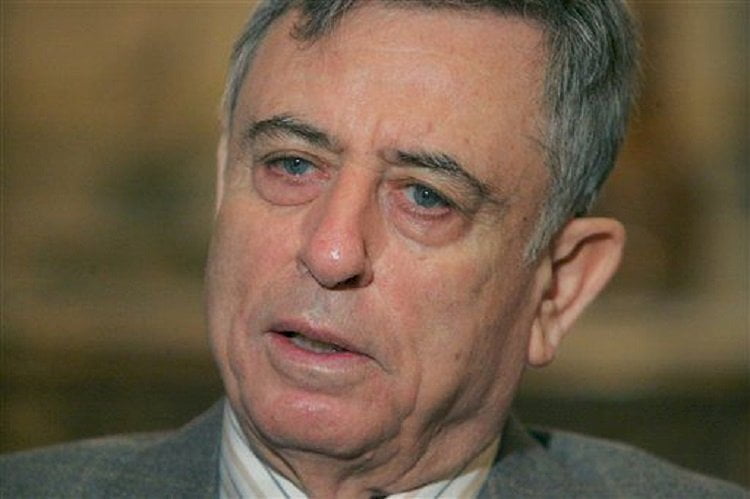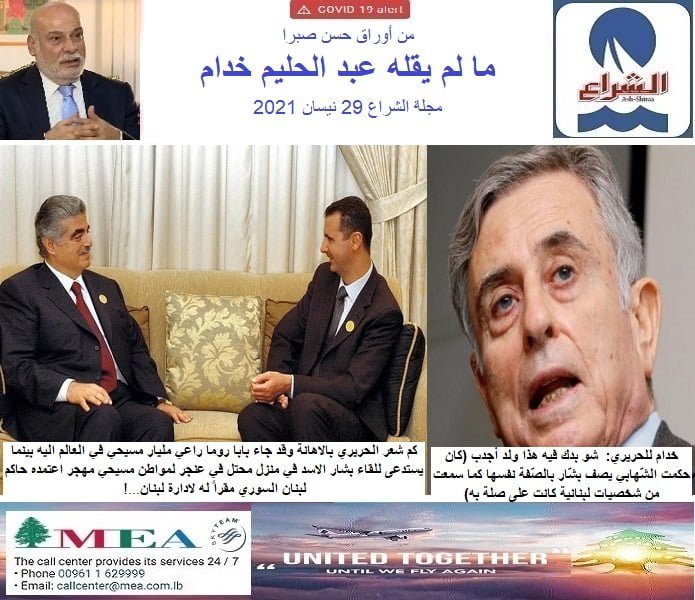Abdul-Halim Khaddam, the Foreign Minister of Syria, directed a question to Mahmoud Riad, the Secretary-General of the Arab League, about the significance of President Sadat’s reference to the possibility of his visit to Jerusalem. Riad replied that it was just a passing phrase. In his memoirs, “In Search of Peace: The Middle East Conflict,” Riad recalls, “I answered him that it was just a passing phrase and asked, ‘Do you really imagine that this could happen?'” Riad emphasizes, “Doubt continued to haunt Khaddam until Ismail Fahmi, the Foreign Minister of Egypt, joined us. He insisted that Sadat’s words were just a confirmation of Egypt’s desire for peace and did not at all imply his readiness to go to Jerusalem. When other foreign ministers joined us, Fahmi reiterated his categorical denial of the visit.”
This occurred before the start of the Arab foreign ministers’ meetings in Tunisia to attend their ministerial council meetings scheduled for November 12, like this day in 1977. It was three days after President Sadat announced his surprises before the People’s Assembly (Parliament) on November 9, 1977, expressing his preparedness to travel to Israel and deliver a speech in the Knesset. This surprise cast its shadow over the meeting, but no one expected it to become a reality.
In his memoirs, “Negotiating for Peace in the Middle East,” Fahmi confirms that he participated in the meeting, the first time that twenty-one out of twenty-two Arab foreign ministers participated. There was much talk in the corridors of the conference about Sadat’s intentions, and rumors spread that he was undoubtedly going to Jerusalem. However, Fahmi denied all of that, affirming that Egypt is committed to peace, and if it is not comprehensive, and if that does not happen, Egypt will reject the return of Sinai, even if Israel offers it on a golden platter. He emphasizes, “I insisted on this position throughout the meetings in Tunisia.”
Fahmi reveals the negotiations that took place behind the scenes and in public sessions, along with his disagreements with Abdul-Halim Khaddam and Khaddam’s conflicts with the Iraqi Foreign Minister Saadoun Hammadi. He confirms that an informal meeting was held in the suite of the Kuwaiti Foreign Minister, Sheikh Sabah. Khaddam was the first to speak, and Fahmi was the last. Fahmi suggested convening defense ministers to discuss the military situation with Israel and Arab ministers of economy and finance to mobilize financial resources for Arab military strategy. He also proposed holding an Arab summit after three months to endorse the foreign ministers’ recommendations. Still, Khaddam objected to the three-month timeframe, insisting it should be only twenty days. He threatened to return to Damascus, stating that his plane was still ready at Tunis airport. Fahmi responded to Khaddam jokingly, saying, “The best thing for you, Abdul-Halim, is to board the plane indeed and return to your homeland.” Everyone laughed, and Fahmi added, “I hate for my friend Abdul-Halim to leave us, and my recommendation to him, after we part ways, is to rush to get a peaceful sleep and meet me at half-past six in the official meeting.”
The session opened with a speech by the Prime Minister of Tunisia. The meeting was chaired by Habib Chatty, the Foreign Minister of Tunisia. Riad delivered a speech, and then Chatty announced the opening of the discussion. He wondered if anyone wanted to speak. According to Fahmi, Chatty did not find a response, and complete silence prevailed. This was something new. After a few minutes, attention turned to Abdul-Halim Khaddam, but without any success. The atmosphere became unusual. Chatty repeated his question, but no one asked to speak. Fahmi emphasizes, “The silence was broken with a joke, saying, ‘It is customary; if Khaddam is not the first to speak, then no one else will speak, and there will be no vitality in our meetings.
The meeting concluded with important decisions, as highlighted by Riyadh: “Commitment to Arab unity, rejection of Israeli attempts to fragment the conflict, and support for the Palestine Liberation Organization.” Fahmi reveals that Sadat called him twice during the meetings. In the first call, he inquired about the atmosphere of the meetings and the possible decisions to be made, as well as the date of his return. In the second call, Sadat was described as “disturbed and nervous.” He spoke about Menachem Begin, the Prime Minister of Israel, in a hallucinatory and strong language. His rhetoric was in line with the speech he addressed to the Egyptians on November 11 in response to Sadat’s willingness to go to Jerusalem. Begin tried to convince the Egyptians that he desired peace but under his conditions, such as explicitly declaring that “Judea and Samaria” or the West Bank is Israeli territory.
Sadat asked Fahmi to prepare a strong response to this accusation. Fahmi did so happily, and the response appeared in Egyptian newspapers as if it were broadcast by the Ministry of Information.


